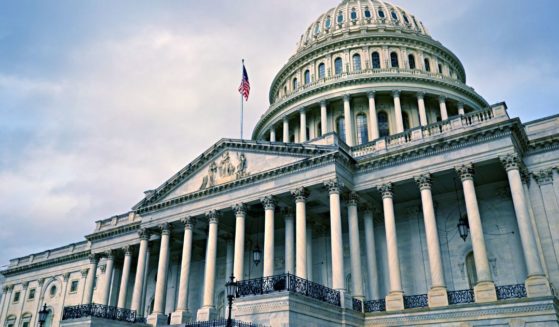Justice Department Sues California Over Net Neutrality Law
California Gov. Jerry Brown signed a net neutrality law Sunday that would reinstate Obama-era open internet rules in California, but the U.S. Department of Justice sued the state almost immediately to overturn the law and block its implementation.
The Federal Communications Commission repealed net neutrality rules in December 2017 that prevented internet companies from controlling what people watched and saw on the internet.
Net neutrality itself, a term that has been the cause of fierce debate, as well as confusion, in recent months, essentially means all internet traffic should be treated equally.
Proponents of the net neutrality rules, which Brown would be in this case, argue that placing the government at the center of the internet is essential to ensuring wireless carriers like Comcast and Verizon can’t control what consumers see or watch by offering different services with varying speeds.
California sought to reinstate those repealed rules on Sunday, but was immediately met with a lawsuit by the Justice Department, which barred states from setting their own rules back in December in its initial repeal.
A DOJ press release states that Brown’s law “unlawfully imposes burdens on the Federal Government’s deregulatory approach to the Internet.”
“Under the Constitution, states do not regulate interstate commerce – the federal government does,” Attorney General Jeff Sessions said in a statement. “Once again the California legislature has enacted an extreme and illegal state law attempting to frustrate federal policy.”
California’s state legislature passed this net neutrality bill in August, which sought to forbade internet service providers from blocking certain websites and intentionally slowing down sites or apps.
FCC Chairman Ajit Pai said on Sept. 12 that California’s law was illegal and warned that he was “going to fight to make sure” the law would be repealed again, according to The Wall Street Journal.
“California’s micromanagement poses a risk to the rest of the country,” Pai said in the September speech. “After all, broadband is an interstate service; internet traffic doesn’t recognize state lines. It follows that only the federal government can set regulatory policy in this area.”
California wasn’t the only state to try to put net neutrality in their own hands, in fact several states have attempted to pass their own respective versions of net neutrality, including New York, North Carolina and Illinois, among others.
After Brown’s actions on Sunday, Pai said that “not only is California’s internet regulation law illegal, it also hurts consumers. The law prohibits many free-data plans, which allow consumers to stream video, music, and the like exempt from any data limits.”
In response to the DOJ’s lawsuit, California state Sen. Scott Wiener, an author on the state bill, claimed in a statement that Sessions “came out of his cave” to sue the state.
Within minutes of our #NetNeutrality bill being signed into law, Jeff Sessions ran into court & sued CA, claiming we don’t have the power to protect internet access. Well, we do. We‘ll fight you & win, just like we did when you sued us on protecting immigrants. My statement: pic.twitter.com/NgMZWNI0mS
— Senator Scott Wiener (@Scott_Wiener) October 1, 2018
“I look forward to working with my colleagues and the Department of Justice to ensure the Internet remains ‘unfettered by Federal or State regulation,’ as federal law requires, and the domain of engineers, entrepreneurs, and technologists, not lawyers and bureaucrats,” Pai’s statement concluded.
Content created by The Daily Caller News Foundation is available without charge to any eligible news publisher that can provide a large audience. For licensing opportunities of our original content, please contact licensing@dailycallernewsfoundation.org.
A version of this article appeared on The Daily Caller News Foundation website.
Truth and Accuracy
We are committed to truth and accuracy in all of our journalism. Read our editorial standards.
Advertise with The Western Journal and reach millions of highly engaged readers, while supporting our work. Advertise Today.












